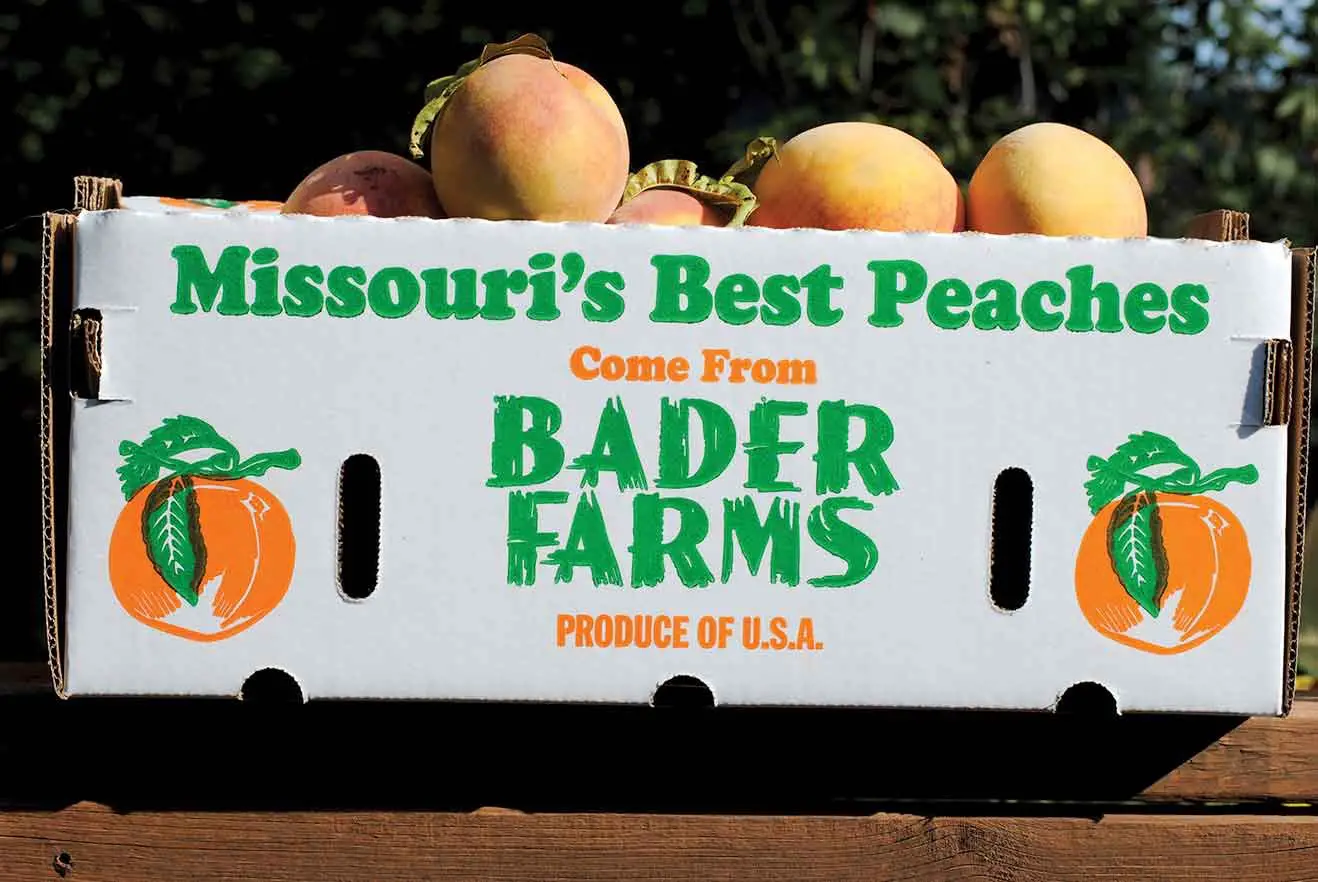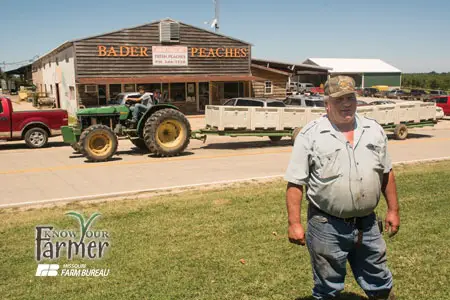
Bader Farms, the largest of its kind in Missouri, is under threat after serious damage was caused by an illegal Monsanto-linked herbicide. Photo via MissouriLife.com.
In the legal world, Monsanto is widely known as a legal bully prone to going after farmers who allegedly commit “Technology Agreement violations” of patents on the company’s controversial genetically engineered seeds.
But while Monsanto has shown itself more than willing to go after farmers (410 farmers were sued in 142 separate lawsuits according to a 2012 report), the farmers themselves are reluctant to go after the biotech giant because of the huge legal advantage it enjoys.
Sometimes, however, the damage is too devastating to ignore — and that’s exactly why Monsanto is now facing legal action from its home state of Missouri’s largest peach farmer.
“The Losses Will Certainly Be in the Millions”
Saying his losses “will certainly be in the millions,” attorney Bev Randles of Kansas City spoke to the St. Louis Post-Dispatch about the plight of her client and farmer Bill Bader, the owner of Bader Farms near Campbell, Missouri.

Bill Bader. Via MOFB.org.
Bader Farms is the largest peach grower in the state, and has operated since 1986, when “the peach fuzz got under (Bill’s) skin” and he bought a 150-acre farm that has since grown to roughly 1,000 acres worth of peaches.
But pesticide drift from an illegal chemical used on a new genetically engineered crop produced by Monsanto is believed to have caused massive damage that will end up costing Bader dearly, and could perhaps even lead to the loss of his farm.
“Those numbers are still being estimated,” Randles said, but preliminary estimates are that Bader lost about 7,000 trees in 2015 for a net loss of $1.5 million.
Because peach trees take about five years to become profitable, the damage is “more long-term and farther-reaching,” Randles told the Dispatch.
In August 2016, The Daily Dunklin Democrat toured Bader’s farm and took inventory of damage caused by the illegal Monsanto-linked chemical. The farm’s “tree limbs sagged with discolored leaves and faltering fruit,” and Bader raised concerns about local mom and pop farmers being run out of business. He pleaded for help from government agencies and even Monsanto and DuPont themselves.
But the damage continued unabated, leading to the landmark lawsuit.
‘Bader vs. Monsanto’
The suit, filed against Monsanto on behalf of Bader on November 23, seeks compensation from Monsanto alleging that the company should assume responsibility for losses allegedly caused by dicamba, an illegal herbicide that has damaged crops across southeast Missouri and other nearby states.
Monsanto’s controversial dicamba-resistant Xtend crops hit the market in 2015, but the highly volatile herbicide was sprayed by farmers despite being illegal. Dimcaba has the potential to drift far away from its original intended target and damage crops that haven’t been genetically modified to withstand it, the Dispatch report noted. The report added that many soybean farmers in the area have experienced crop losses due to suspected drift from dicamba herbicides, and Bader believes that his peach trees and other crops have also been hit.
Facing massive losses and without insurance due to the lack of coverage for herbicide damage, Bader felt he had no choice but to sue the agrochemical giant, in what Monsanto called the first suit of its kind.
The company also denied responsibility.
In a statement, Monsanto said that the lawsuit “attempts to shift responsibility away from individuals who knowingly and intentionally broke state and federal law and harmed their neighbors in the process. Responsibility for these actions belongs to those individuals alone,” and said it had advised farmers against using the illegal herbicide. Monsanto is currently developing a “low volatility” version of it which includes glyphosate, another controversial herbicide that the World Health Organization declared a “probable human carcinogen” in 2015.
Randles and Bader, however, disagree and believe Monsanto should be accountable.
“The issue here is one of ‘foreseeability,’” said Randles. “It was entirely foreseeable that if Monsanto released the Xtend products onto the market that farmers would seek a way to protect those Xtend seeds from damage and they would do that by spraying dicamba.”
For more on the lawsuit, check out the full article from the Dispatch by clicking on this link.
Monsanto Pesticide Remains Banned in Many Places
As of April 2018, the dicamba chemical was banned in Arkansas by its state plant board, but the ban was lifted by East Arkansas judges in two counties so their farmers could use the controversial crops.
When the original ban was handed down, Monsanto responded by suing every single member of the plant board. Farmers in 10 states have sued Monsanto over dicamba, while restrictions have been passed down in North Dakota.
The Bader case is still pending, while petitions have been launched to ban dicamba in Europe.
Thanks for installing the Bottom of every post plugin by Corey Salzano. Contact me if you need custom WordPress plugins or website design.






